Humankind: A Hopeful History
£6.60£9.50 (-31%)
THE INTERNATIONAL BESTSELLER
A Guardian, Daily Telegraph, New Statesman and Daily Express Book of the Year
‘Hugely, highly and happily recommended’ Stephen Fry
‘You should read Humankind. You’ll learn a lot (I did) and you’ll have good reason to feel better about the human race’ Tim Harford
‘Made me see humanity from a fresh perspective’ Yuval Noah Harari
It’s a belief that unites the left and right, psychologists and philosophers, writers and historians. It drives the headlines that surround us and the laws that touch our lives. From Machiavelli to Hobbes, Freud to Dawkins, the roots of this belief have sunk deep into Western thought. Human beings, we’re taught, are by nature selfish and governed by self-interest.
Humankind makes a new argument: that it is realistic, as well as revolutionary, to assume that people are good. By thinking the worst of others, we bring out the worst in our politics and economics too.
In this major book, internationally bestselling author Rutger Bregman takes some of the world’s most famous studies and events and reframes them, providing a new perspective on the last 200,000 years of human history. From the real-life Lord of the Flies to the Blitz, a Siberian fox farm to an infamous New York murder, Stanley Milgram’s Yale shock machine to the Stanford prison experiment, Bregman shows how believing in human kindness and altruism can be a new way to think – and act as the foundation for achieving true change in our society.
It is time for a new view of human nature.
Read more
Additional information
| Publisher | 1st edition (13 May 2021), Bloomsbury Publishing |
|---|---|
| Language | English |
| Paperback | 496 pages |
| ISBN-10 | 1408898950 |
| ISBN-13 | 978-1408898956 |
| Dimensions | 19.8 x 3.4 x 12.9 cm |

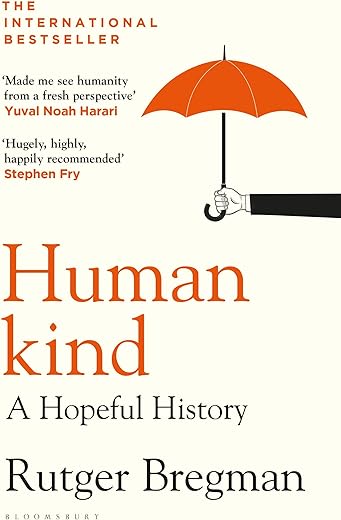
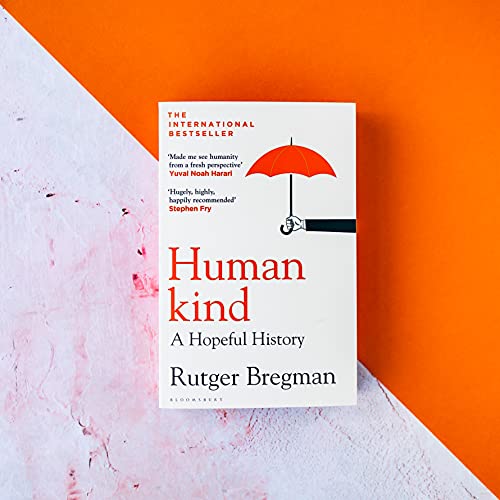
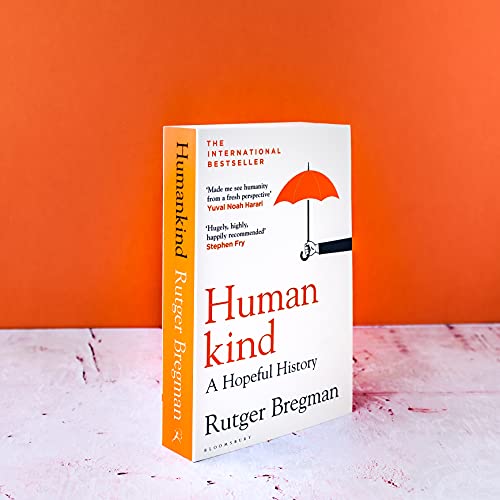


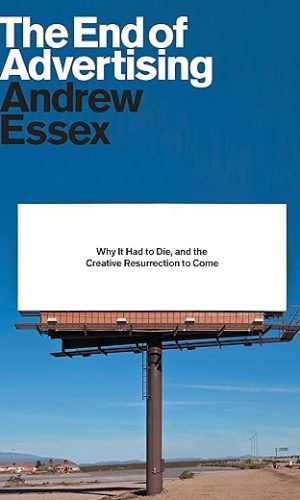

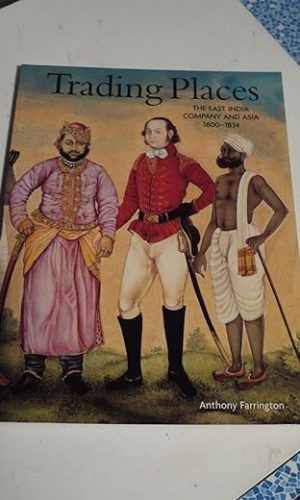


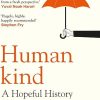
by Vitor Popinsky
The author gives an excellent argument about what mainstream books tell about humans and he gaves a completly different one.
by Emmett
This book is terrible. It’s a shame, as I had hoped it would be a useful addition to the discussion about human progress.
Unfortunately, the author seems DESPERATE to believe humans are fundamentally nice. He accepts any argument for humans being nice, no matter how weak the evidence.
To be fair, he does list a few arguments for humans not being fundamentally nice. But he dismisses all of these by accepting the first argument he can find against them, despite most of these being incredibly weak.
This absolute scepticism of arguments against his position, and unquestioning acceptance of any evidence supporting his view, is exasperating. The author can think. He’s just so desperate to believe humans are nice, he is incapable of fairly assessing the evidence. I will provide a few examples of each below.
First, I will outline his main argument:
He argues that before agriculture and settled communities, people were hunter gatherers and led very peaceful egalitarian lives. But agriculture allowed surpluses that could be stored, so some people could dominate resources, increase their power, and become elites. He says this created patriarchy, heirarchical society, and led to lots of horrible oppressive behaviour we now see as normal. If only we could get back to that psychological state, we would unleash our inner hunter/gatherer loveliness and people would be much happier! So society should more often start with the assumption that people are nice, and everyone’s lives will be better!
Problems with the book:
1) Hunter gatherers are not always nice
He accepts without question various stories about pre-agriculture being nice, post agriculture being nasty. However, he completely ignores the evidence for permanent settlements in pre-agriculture societies where there were enough resources, such as Ainu Japan. Historically, “hunter gatherer” native americans in Florida and the Pacific Northwest were able to settle due to using marine resources (salmon in the NW). Permanent settlements then allowed the creation of warrior elites, a caste of hereditary slaves, and slave raids on surrounding amerindian groups. Given the historical and archaeological examples of this, there is good reason to think this would have happened pre-agriculture where resources were rich enough.
He also has a rose tinted view of hunter-gatherer lifestyles as being egalitarian and non-sexist. But many hunter gatherer groups that are seen as egalitarian today have arranged marriages (sometimes arranged before the children are even born). Many have historically raided for wives. Other historic examples have involved a group massacring the men of a nearby rival group and forcing their widows to marry them. By modern standards this would be sex-slavery. Some groups have very high levels of domestic violence against women and children. So the evidence that hunter gatherers are lovely is pretty weak.
2) ridiculous arguments about farming and sex
He accepts the fairly ridiculous argument that settled farming caused humans to gain sexually transmitted infections (STIs). This idea has been around for at least a century, an no evidence has been found to support it. Basically his argument is: 1) Prior to agriculture, humans lived in small scale societies with too few people for STIs to persist, so humans did not have STIs before agriculture. 2) People created settled communities, allowing a big population increase. 3) A male elite forms and dominates the surplus agricultural resources. 4) The elite used their increased power to take multiple wives, so many non-elite men could not find a wife. 5) So the unwed men started having sex with farm animals! 6) This allowed STIs from farm animals to pass into humans. So agriculture caused humans to start having STIs.
There are a lot of problems with this argument. But the author does not mention any of them, but instead just blindly accepts this argument and states it as a fact. Here are some of the major problems with his argument.
1) Humans and their ancestors have had pubic lice for 2 million years. So we did have STIs long before agriculture. So STIs do not have to come from farm animals.
2) HIV was transmitted to humans within the last century. No one thinks this happened through sex. So STIs could pass to humans from animals through non-sex pathways during hunting. There is no need for the salacious bestiality theory at all…
3) Syphilis came from the Americas. The only domesticated mammals of a suitable size there are dogs and llamas. It cannot have come from dogs, because they would have had it before they arrived in the Americas, unless they somehow evolved it in the Americas. And researchers specifically looked for evidence of syphilis in llamas and relatives to test this “STIs come from domesticated animals” theory, and found no evidence for it.
4) In general, this theory has been tested and debunked. But the author ignores that literature.
3) failing to disprove high rates of violence in hunter-gatherer societies
He discusses the evidence put forward in Steven Pinker’s 2011 book “Better Angels of our Nature” which reviewed anthropology evidence for rates of violence in current and historical societies, finding that modern societies have vastly lower murder rates than small scale and hunter gatherer societies. This is obviously a huge problem for Bregman’s argument.
He dismisses all this evidence by discussing evidence that the study of the Yanomami in the Amazon was biased, carried out by deeply biased researchers who wanted to prove humans were fundamentally violent.
There are several huge problems with this. First, even if he is correct about the Yanomami data, that does nothing to disprove all the other data points. One bad study does not disprove the weight of evidence. It is absolutely shoddy of Bregman to imagine that disproving one data point is enough. If he wants to show that hunter-gatherer and small scale societies are peaceful, he needs to disprove the high-violence data for most of them, not a single case.
But even his Yanomami criticism is false. He relies entirely on a book by Patrick Tierney, whose work has been completely debunked. Even just reading the Wikipedia page on this would find all this information, with links to the various official reports by learned societies, including ones hostile to the anthropologists involved. All conclude that Tierney was deeply biased, and made most of the allegations up himself. Any proper journalist or just vaguely competent investigator would have found all this. This is embarrasingly shoddy research by Bregman.
After these three absolute failures of basic research, I just gave up on the book. If he can accept these arguments without any scepticism, I really cannot trust anything he writes.
To be fair, the section of the book about the shipwrecked children who had to survive on an island together is really nice and well written. But if you want to better your understanding of humanity, this book is worse than useless. The author is so blinkered by his bias, you really cannot trust anything he says.
by James Templeton
I ordered this book after wanting to read a somewhat positive spin on human nature given our almost constant exposure to the barrage of stories about how mankind is nothing but evil and we are all just animals waiting for societal breakdown before we can unleash our worst natures on the world.
Happily, this book provides very good evidence that, at the very least, the information we receive might not be the full story. I’m not fully convinced, having read several other tomes on human behavior and definitely seeing some ‘real life’ evidence of human wickedness, but still, this book supplies plentiful evidence that humankind is not all-wicked, and in fact might even be able to achieve great things were it not for our seeming willingness to willfully forget about our nature and our past and believe only the worst about ourselves and our societies.
There are not many books where you read them and HOPE that what they are espousing is the truth because it will help you to feel more optimistic during the rather dark times we seem to currently be living through but this is definitely one of those books. I came away from it with a newfound respect for mankind and a genuine bit of inspiration to help make the world a little bit better, even if only in my local community. (I feel community is the missing ingredient in society today that has allowed use to stray so far from our warmer ‘communal’ natures).
I had to look up lots of things outside of the book to confirm whether or not the author was bending the truth a little and for the most part I was pleasantly surprised.
In short, it really does seem that humans are not as bad as we have all been led to believe.
by Jonathan Korshin
For once, a book on the “Bright Side!”
by nemo
I love every word of this book. It gave me hope that it’s not all lost for humanity, and it changed my perspective on humankind.
by M. J. Tavener
This is one of those books that’ll change the way you see the world. I had always thought that people were intrinsically good and this book proves it. Suddenly, the ideas are in sharp focus and my thoughts seem to be reinforced, giving me a more rounded view of humanity. The book gives me hope for the future and the changes humanity needs to make, in order to have a progressive humanist society based on needs not money.
by Breda
Great read, easy but very informative and humurous.
by A. Crofts
Excellent work of optimism. Life really isn’t as fraught and doom ladened for most of us, most of the time, as the media would like us to believe. This book provides plenty of evidence to that end.